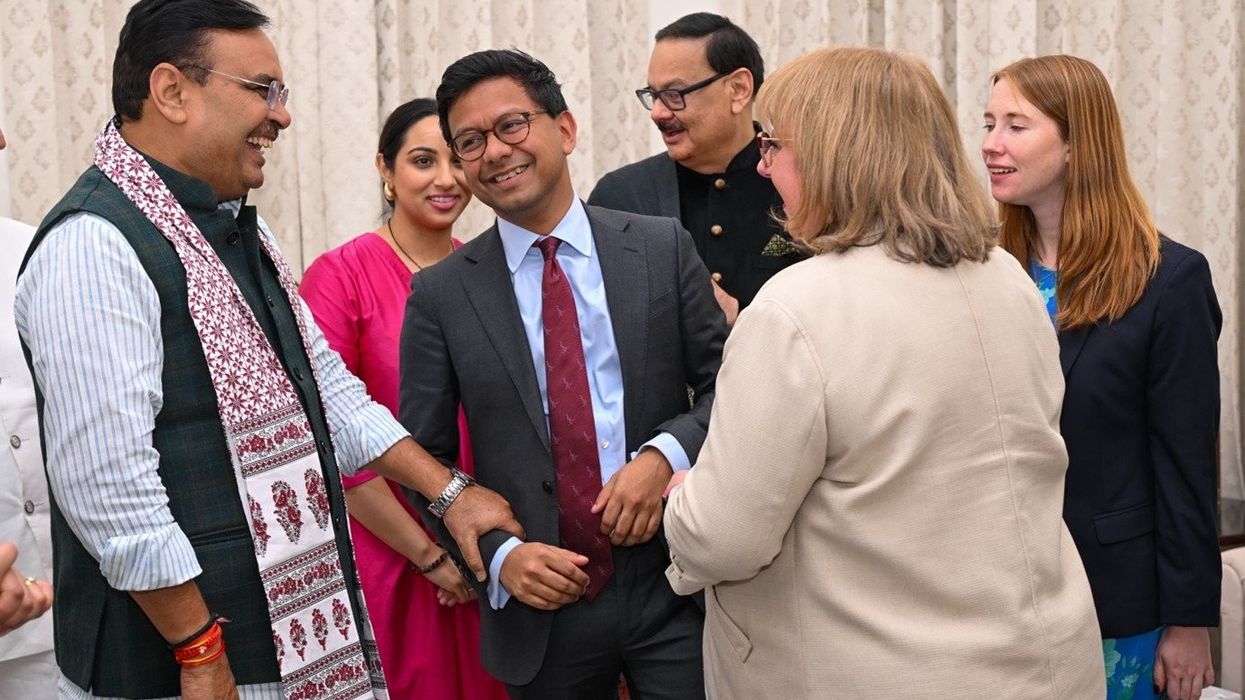WHEREVER you look in the world right now, elections are reshaping political landscapes with startling frequency.
In the UK, the Conservative government has been dramatically swept aside by Labour. In India, a fierce electoral battle has recently concluded. France is witnessing a damaging swing between farright and far-left politics.
Meanwhile, in the US, the nation is deeply divided between Joe Biden (Democrat) and Donald Trump (Republican).
What is undeniable is that we are living in a time of wild extremes, with the political pendulum swinging from one side to the other. These shifts are not just movements; they are upheavals driven by public discontent and anger over past grievances and perceived extremes.
People are not necessarily choosing what they want, but are instead vehemently rejecting what they do not want.
This wave of elections highlights a critical issue: the absence of deeply rooted values in our political discourse.
Voters are often faced with choices that feel more like repudiations of the past rather than endorsements of a clear, valuedriven future. This lack of foundational values only exacerbates the volatility, making the pendulum swing even more unpredictably.
In the US, the deep divide between Biden and Trump is less about a clash of ideologies and more about a stark rejection of the other side. This game of politics leaves little room for nuanced discussions about values and the kind of society people want to build. It’s not enough to oppose; there must be a clear vision of what we stand for and aspire to achieve.
In France, the dramatic swing between far-left and far-right politics – which has resulted in national chaos – reflects a profound discontent with the status quo, but also a dangerous drift from the values of liberty, equality, and fraternity.
These foundational values are being overshadowed by fear and reactionary politics. This shift underscores the urgency of recommitting to core values that can unite rather than divide.
In the UK’s case, throughout the election campaign, political leaders seemed hesitant to firmly commit to any particular set of values, fearing backlash and criticism. This reluctance to take a stand left the electorate adrift, knowing what they wished to move away from but unclear about what they were moving towards. The result has been a political environment in which avoiding making things worse has become the default goal.
Voters have expressed a growing disappointment with the Conservative party, perceiving its shift towards the right as unnecessary and alienating. This discontent has led to a significant shift in the political landscape, with traditional Conservative voters defecting to the Liberal Democrats or Reform party. As a result, the Conservatives have seen a damaging loss in their voter base.
If they are to reclaim their position as a moderate and appealing choice, the Conservative party must articulate clear, resonant values that align with the electorate’s expectations and stand firm on these principles.
Meanwhile, Labour’s approach under Sir Keir Starmer has been notably reserved. By not taking bold stances or making controversial statements, Starmer has managed to win the election.
However, leading a country requires more than just strategic silence; it demands clear values and decisive action. Given the tumultuous events of recent years, the country needs transparent and strong values-based leadership.
The essence of a healthy political system should be to improve lives for all citizens. Right now, however, the focus seems more on damage control than on constructive progress.
This defensive stance undermines the very purpose of politics, which should be about envisioning and building a better future. To achieve this, we must return to a place where core values guide our decisions and policies.
Values such as justice, equality, and respect for human dignity should be the bedrock of our political systems. These values provide a stable foundation upon which policies can be built and measured. Without them, the political landscape becomes a battleground of fleeting alliances and reactionary measures.
Ultimately, it falls upon our political leaders to articulate and embody a clear set of values. They must be courageous enough to take clear stands, even at the risk of criticism. Political leadership should be about more than winning elections; it should be about guiding society towards a shared vision of the future.
Leaders need to focus on building better lives through the lens of enduring values, rather than trying to avoid making things worse.
The current state of global politics is a testament to the dangers of value-free leadership. As the pendulum swings ever more wildly, the absence of a firm foundation makes it harder to find stability and direction. It’s time to stop merely running away from what we don’t want and start moving towards a clear values-driven vision of what we do want.
Only then can we hope to see a political landscape that truly serves the needs and aspirations of all its citizens.
(Dr Mandeep Rai is the author of The Values Compass)




















‘Current politics shows alarming lack of values’
Voters drive global elections by rejecting previous extremes